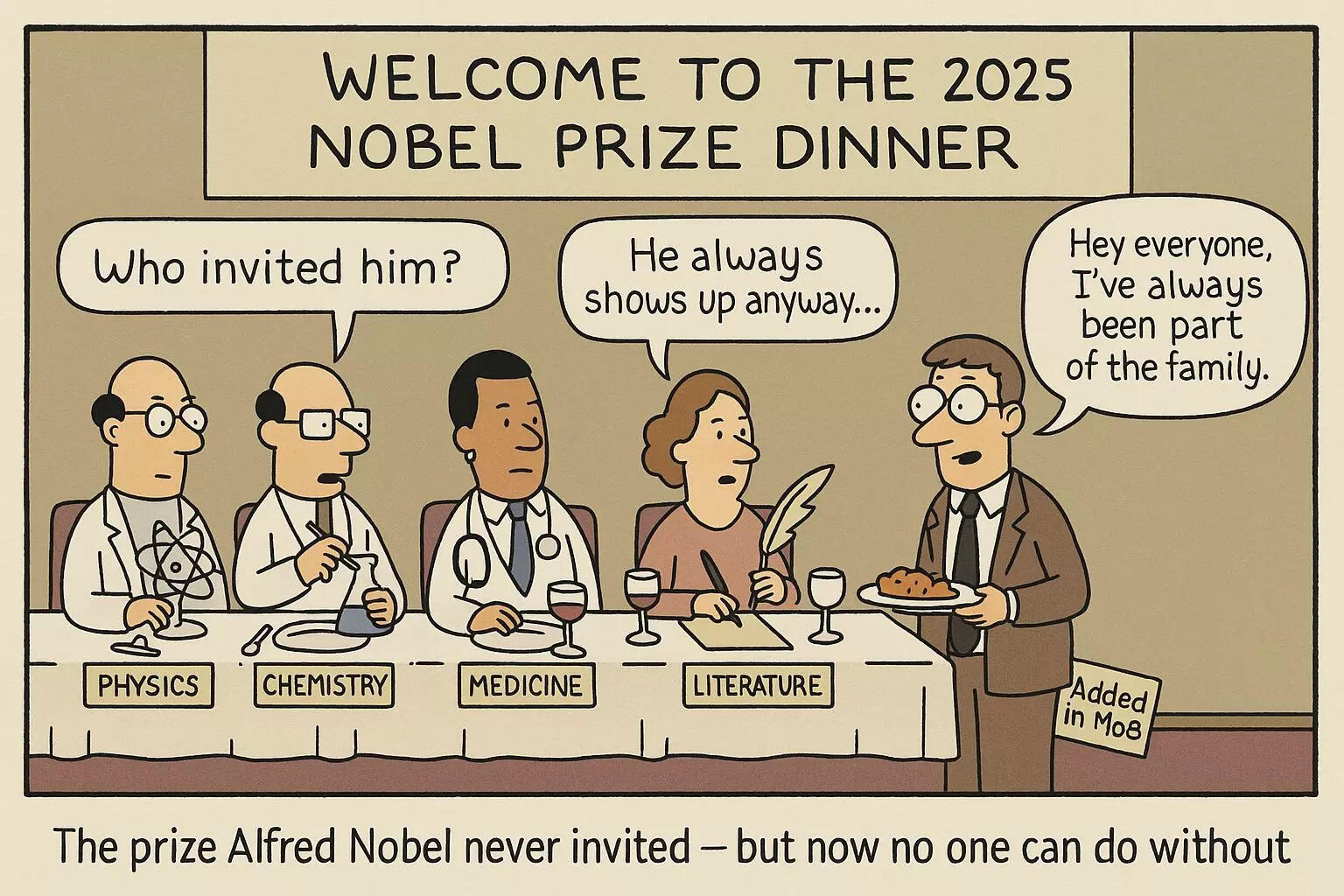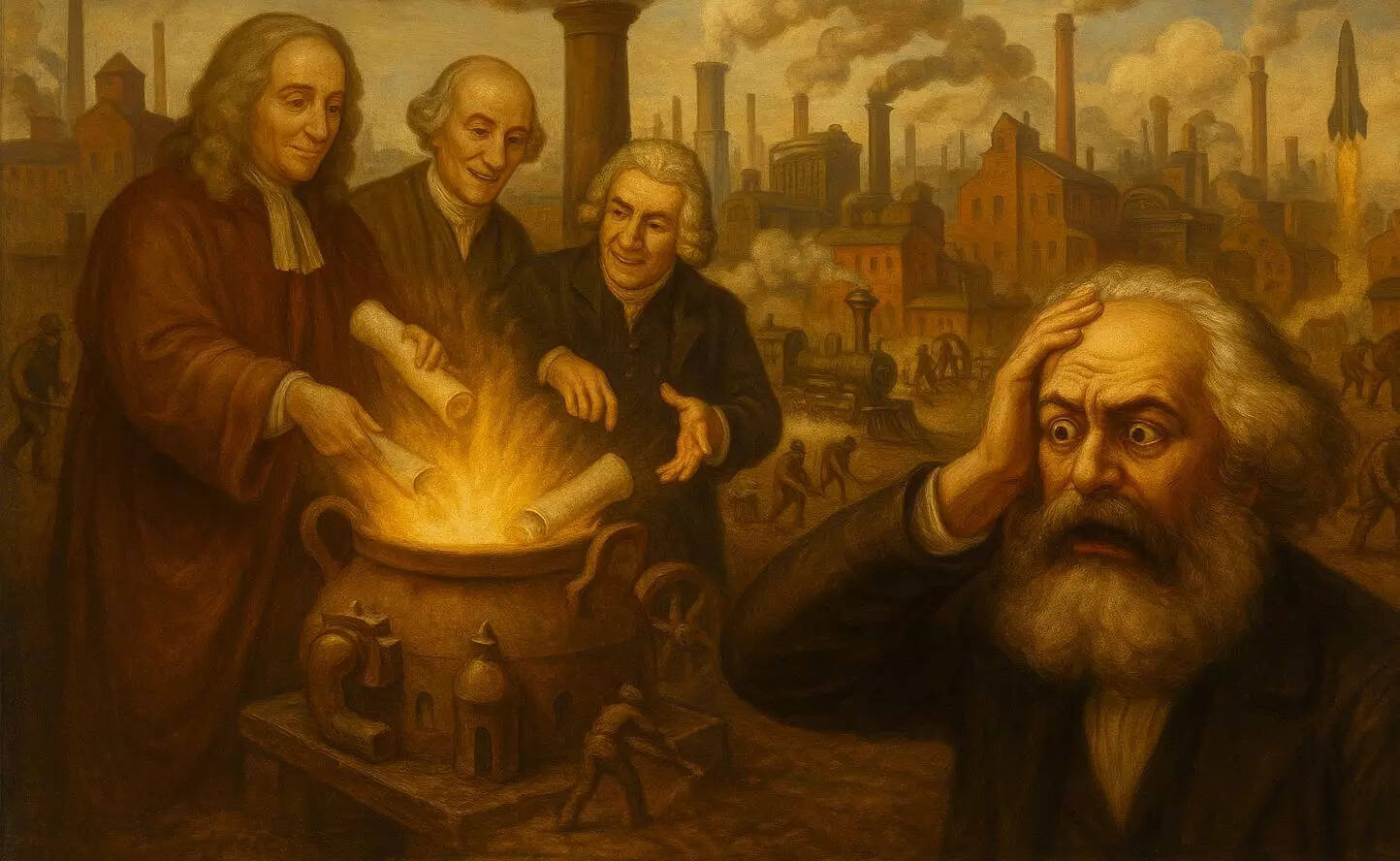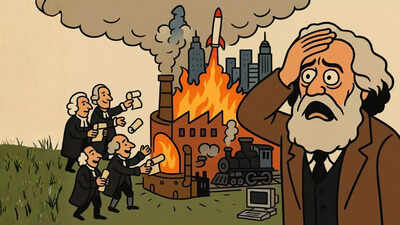“We’re a planet of six billion ninnies living in a civilisation built by a few thousand savants,” Scott Adams once said — and beneath the Dibert creator’s misanthropy is a disarmingly accurate description of how the modern world works. Most of us don’t invent, build, or discover anything of world-changing importance. We live inside systems we didn’t design, using tools we don’t understand, and benefitting daily from the work of people whose names we’ll never know. And yet, we’re quick to criticise those same systems — science, technology, capitalism — that lifted us from the brink of subsistence to a level of prosperity our ancestors couldn’t imagine.It’s precisely this paradox that the Nobel Prize in Economic Sciences asks us to confront. It’s also the most controversial of the Nobel family because, strictly speaking, it isn’t a Nobel at all. Alfred Nobel never mentioned economics in his will; the prize was added in 1968 by Sweden’s central bank — a late addition to the family tree. Think of it as Cousin Greg from Succession: the awkward relative who wasn’t invited to dinner but now shows up every Christmas and insists he’s always been part of the family. And yet, this gate-crashing prize may be the most consequential of them all, because economics isn’t just about money. It’s about the deep, often invisible mechanisms that explain how human civilisation stopped crawling and started sprinting.

From Flat Lines to Hockey Sticks
For most of recorded history, humanity went nowhere fast. A peasant in medieval Europe lived much the same life as a farmer in ancient Mesopotamia. Empires rose and fell, plagues came and went, and the occasional invention — a plough here, a printing press there — might briefly improve life. But those improvements rarely built on one another. Progress was sporadic and short-lived. The line of human prosperity was basically flat.Then, about two centuries ago, everything changed. Wealth began to grow exponentially. Populations soared. Cities expanded. Medicine worked. Steam, electricity, combustion and, eventually, computing transformed every corner of life. And instead of slowing down, progress began to accelerate. The question is: why?This year’s Nobel laureates — Joel Mokyr, Philippe Aghion, and Peter Howitt — offer complementary answers to that question. Together, their work explains why humanity’s growth engine roared to life — and what keeps it running today.
Mokyr: The Marriage of “Know-How” and “Know-Why”
Joel Mokyr, an economic historian, argues that the Industrial Revolution wasn’t just about machines — it was about knowledge. Before the 18th century, most human innovation was based on know-how: practical skills, techniques, and tricks. People knew how to do things but not why they worked. Without that deeper understanding, invention couldn’t build on itself. Progress happened in bursts but couldn’t compound.The Enlightenment changed that. Science and technology stopped being separate worlds and started reinforcing each other. Scientific discoveries explained why things worked, which allowed engineers to design better tools and machines. Those tools, in turn, raised new scientific questions. Mokyr calls this cycle “useful knowledge” — a feedback loop between theory and practice that transformed invention from a series of lucky accidents into a self-sustaining system.But knowledge alone wasn’t enough. It needed skilled people to turn ideas into reality — artisans, mechanics, and engineers — and it needed societies willing to embrace disruption. Britain was uniquely placed for this. It had a pool of skilled craftsmen and institutions flexible enough to allow new industries to rise, even when they destroyed old ones. Where older systems punished change, Britain began to reward it — and progress exploded.
Aghion & Howitt: Growth Through Creative Destruction

If Mokyr explains how growth begins, Philippe Aghion and Peter Howitt explain how it continues. Their core idea is creative destruction — Joseph Schumpeter’s famous term for capitalism’s brutal but productive cycle. In a dynamic economy, new technologies don’t complement the old; they replace them. A company invents a better product, dethrones the market leader, and is itself dethroned by the next innovator. Industries collapse, jobs disappear, and new ones emerge.Beneath the smooth line of GDP growth lies this constant churn — a storm of destruction that fuels creation. It’s not a flaw; it’s the engine. The promise of profit drives firms to innovate, knowing they’ll eventually be replaced. The fear of obsolescence drives them to run faster. And the result is relentless progress.Creative destruction is not without pain. It produces winners and losers. It can move too quickly — wasting resources on marginal improvements — or too slowly, when monopolies choke competition. But without it, economies stagnate. Aghion and Howitt’s work helps explain how societies can manage that balance: encouraging innovation without letting it spiral out of control.
Why It Matters
The core lesson from this year’s Nobel is deceptively simple: sustained prosperity isn’t natural. It’s engineered. It depends on the marriage of science and technology, on societies that embrace change rather than fear it, and on markets that reward innovation while punishing complacency. It’s why we complain about slow Wi-Fi instead of famine. It’s why we debate the ethics of artificial intelligence instead of the inevitability of plague. And it’s why most of us have never known the grinding poverty, insecurity, and vulnerability that were once the default condition of human life.Yet this system is fragile. It can be undone by monopolies, political short-sightedness, or cultural resistance to change. It can be slowed by hostility to science, censorship, or the temptation to cling to the familiar. If that happens, the line flattens again. Stagnation returns. And the miracle of modernity — the miracle we take for granted — begins to fade.Scott Adams was right: civilisation is the work of a few thousand savants. But those savants are not lone geniuses; they are products of a system built over centuries — a system that turns knowledge into invention, invention into industry, and industry into prosperity. Our job is not to sneer at it but to sustain it. Because Cousin Greg, for all his awkwardness, is the reason we’re here. And without him — without economics — the story of how eight plus billion ninnies ended up living in a civilisation of unimaginable abundance would make no sense at all. Go to Source


